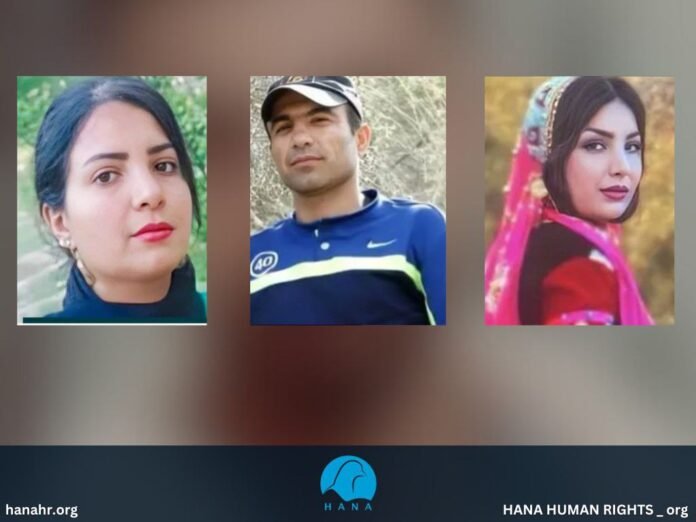The Korkor family is an example of families whose lives have been deeply affected by the relentless harassment and pressure from the Islamic Republic’s security forces. The fate of three family members—Mojtaba, Negar, and Rana—illustrates the systematic abuse and inhumane treatment of families of political prisoners by the Iranian authorities.
Mojtaba Korkor (Abbas Korkori), a citizen of Izeh, was arrested in Azar 1401 (December 2022) during public protests and detained in Sheiban Prison, Ahvaz. The judiciary accused him of “waging war against God,” “corruption on earth,” and “membership in a rebellious group.” In Farvardin 1402 (April 2023), the Ahvaz Revolutionary Court sentenced him to death. Although this sentence was overturned once by the Supreme Court, it was reaffirmed upon retrial.
Judicial authorities, without presenting any conclusive evidence, claimed that he was responsible for the shootings on 25 Aban 1401 (November 16, 2022) in Izeh, an incident that killed seven people, including 9-year-old Kian Pirfalak. However, the Pirfalak family repeatedly stated in interviews and public comments that the shooting was carried out by security forces and that they had not filed any complaint against Korkor. Even Meysam Pirfalak, Kian’s father, who was injured in the incident, described the charges against Korkor as baseless.
Multiple reports indicate that Mojtaba was subjected to severe physical and psychological torture to extract forced confessions. Human rights organizations have repeatedly reported that the trial was unfair and violated principles of due process. Ultimately, on 21 Khordad 1404 (June 11, 2025), coinciding with Kian Pirfalak’s birthday and just three months after the death of his sister and fellow activist Negar Korkor, Mojtaba’s death sentence was carried out, sparking widespread domestic and international protests.
His sister, Negar Korkor, who had engaged in civil and media activism to save her brother and advocate for justice, lived abroad. She faced tremendous emotional pressure due to the persecution of her family and ongoing threats, all while battling cancer. She passed away in Farvardin 1404 (March 2025). Negar’s death, as a prominent advocate for victims’ families, highlights the heavy toll on civil activists and justice-seeking families both inside and outside Iran.
The other sister, Rana Korkor, has also faced repeated persecution. In Tir 1403 (July 2024), she was arrested by security forces and transferred to the women’s ward of Evin Prison. Reports from inside the prison and testimonies from former political prisoners, including Maryam Yahyavi, describe the harsh conditions Rana endured and the psychological pressure she faced. These accounts emphasize her severe anxiety over her brother’s potential execution, her mother’s deteriorating health, and the fate of her children. Rana was released on bail after approximately one month in detention, but she continued to face new charges.
Recently, Rana announced on her personal social media that a three-year prison sentence had been enforced against her, and she must report to serve her term. In her statement, she emphasized her innocence, recalled the suffering from losing her brother and sister, and stressed that her only “crime” was standing for the truth.
The situation of the Korkor family again exemplifies the pattern of systematic harassment faced by justice-seeking families in Iran—from Mojtaba’s arrest and execution, to Negar’s death in exile, and finally Rana’s imprisonment. This pattern constitutes a clear violation of fundamental human rights, including the right to life, freedom of expression, the right to a fair trial, and freedom from torture and abuse.
Hana Human Rights Organization condemns the abuse of the Korkor family and calls for an end to the endless cycle of harassment and pressure against the families of political prisoners and justice seekers.

